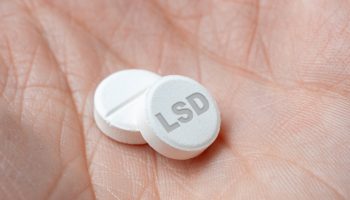Marijuana can easily be categorized as one of the top-most controversial drugs. This is true, not just in America, but in the rest of the world. In America, some states have legalized the use of medical and recreational marijuana thanks to the findings of certain studies.
This means that accessing Marijuana is a lot easier than it used to be a few years back. Almost anyone can pick up the habit of smoking the drug. Regardless of the many benefits of using Marijuana discovered by said studies, the drug is still addictive.
At least 30% of the people that use the drug probably suffer from marijuana use disorder. This is based on the data revealed by the National Institute on Drug Abuse. The continued to state that the earlier an individual starts to use the drug, the more likely they are to develop the disorder.
If the individual does not stop using the drug, then the disorder will turn into an addiction. Perhaps you’re worried that a loved one is addicted to marijuana. If so, you might find this article helpful. However, the right place to start is by learning what the drug is and the symptoms that come with using it.
What is Marijuana?
 Marijuana is extracted from the cannabis plant before it can be dried and ground up. It contains Tetrahydrocannabinol or THC, a chemical substance considered psychoactive. THC is what is responsible for the high that the user usually experiences after smoking the drug.
Marijuana is extracted from the cannabis plant before it can be dried and ground up. It contains Tetrahydrocannabinol or THC, a chemical substance considered psychoactive. THC is what is responsible for the high that the user usually experiences after smoking the drug.
Once inhaled or consumed, the THC in the drug interacts with the endocannabinoid system by binding with cannabinoid 1 (CB1) receptors. The cannabinoid 1 (CB1) receptors are a part of the brain that are responsible for the reward system and dopamine release. Hence, THC triggers it to increase the release of dopamine leading to a state of euphoria.
Other than being smoked, marijuana can come in many forms. It can come in the form of edibles, oils and capsules just to mention a few.
Symptoms and Signs of Marijuana Addiction
If you’re having some difficulty in pinpointing the telltale signs of marijuana addiction, they include:
- Experiencing withdrawal symptoms means that the user is addicted: Withdrawal symptoms can be anything from anxiety, loss of appetite and irritability.
- Using the drug as a means of escape from reality
- Most time is lost on getting high
- Lack of motivation and/ or loss of interest in activities and hobbies
- Anxiety
- Depression
- Paranoia
- Memory problems
- The user has a slower reaction time and suffers from lack of coordination
- Inability to make sound judgements
- Hallucinations
- Increased or decreased appetite
- Poor academic performance
The long-term effects/symptoms of marijuana addiction include:
- Lung issues
- Panic attacks
- Memory loss or memory gaps
- Mood swings
- If the individual is still young, their mental development may be inhibited. This can make academic learning hard for them.
 Admittedly, compared to Meth or Cocaine, it’s a lot harder to get addicted to Marijuana. However, the more an individual uses it, the more likely they are to become addicted. Watch out for those that use the drug as a means of escapism.
Admittedly, compared to Meth or Cocaine, it’s a lot harder to get addicted to Marijuana. However, the more an individual uses it, the more likely they are to become addicted. Watch out for those that use the drug as a means of escapism.
As mentioned earlier, if the individual started using Cannabis as a teen, they are likely to become addicted as an adult. Hence, as a parent, it would be best to discourage the use of the drug as early as possible. Be okay with talking about the dangers and long-term negative effects of using the drug with your children.
Please note that even though it’s a lot harder to get addicted to Cannabis, it is considered a gateway drug. This means that it opens up the doorway for the user to use more dangerous drugs.
If you’ve already been able to identify that your loved one is addicted, what’s the next step? The next step is to help the addict.
How to Deal with A Marijuana Addict
 There are some parents or loved ones that were able to identify a problem earlier before it became an addiction. If you’re one of those, then instead of taking them for rehab, there are other ways of dealing with it. When you approach them, try and identify the reason they started using Marijuana.
There are some parents or loved ones that were able to identify a problem earlier before it became an addiction. If you’re one of those, then instead of taking them for rehab, there are other ways of dealing with it. When you approach them, try and identify the reason they started using Marijuana.
Perhaps the individual is using it to help relieve symptoms of anxiety, physical pain or even depression. By identifying the cause, you can come up with other ways to cope with the problem.
However, if your loved one is already addicted, the first step is learning how to approach them about it. You may have noticed that whenever you try to bring the topic up, the individual tends to get aggressive and/or defensive. To keep this from happening, try the following:
- Pick a time when you’re sure your loved one isn’t high or intoxicated.
- Watch your tone: Your tone can tell a lot about your mood. If you’re not watchful, you might sound judgemental or angry. This will only make the addicted individual defensive.
- Be compassionate and on their side: You want them to know that you’re just worried about them.
- Talk about the consequences: Whilst sober, it’s easier for the addict to listen to the consequences of their actions. This will help them reflect on their actions and possible treatment options.
- Always listen to what they have to say: Do not cut them off when they’re trying to say something. Always be willing to listen while remaining calm.
- Ask them if they want treatment: If they do not bring up their willingness to get treatment, ask them about it. If they’re not willing to get any, do not try and force the issue. Wait for another time.
- Avoid enabling them: If the addict said no to treatment, make sure that you do not enable their drug use. Avoid getting them out of problems they got themselves into through their drug use. Let them deal with the consequences of their behavior. Only then, will they be able to think about the seriousness of their actions.
You can ask friends and family members to avoid enabling the addict as well.



